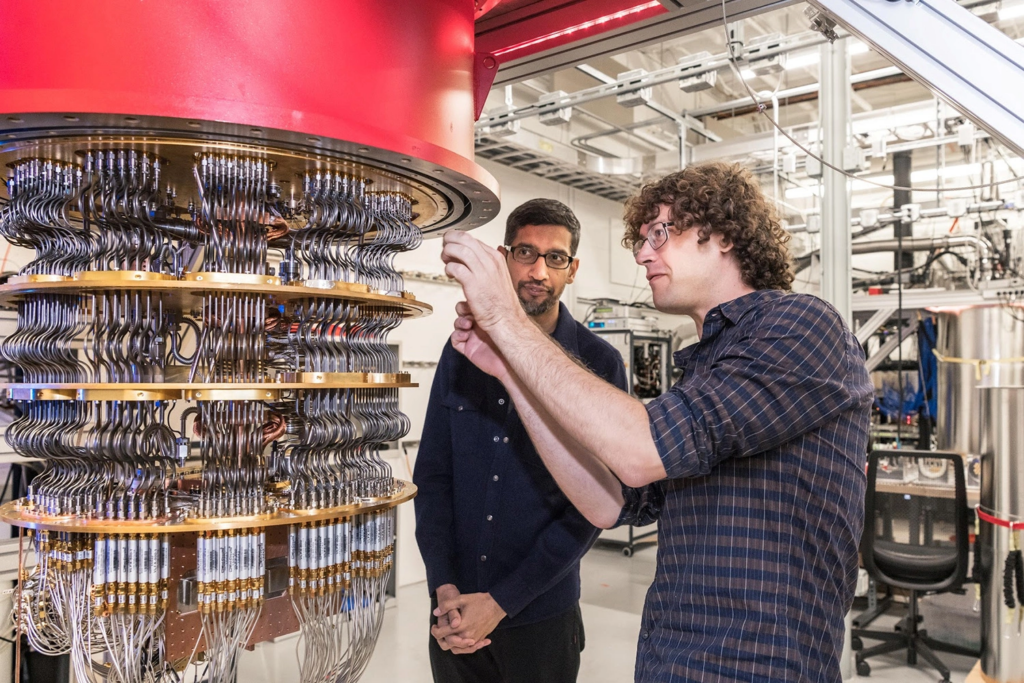21st century is Quantum Age. General-purpose quantum computers will take years to develop. Domestic and foreign hybrid emulations that use quantum phenomena on classical hardware are available.
As we properly develop quantum technology (QT) while retaining freedom in the free world, we must adhere to liberal democratic norms. Regimes with less concern for fundamental human rights may employ the technology.
The free world must promote democratic ideals in any competition for technological superiority and collaborate on big issues like climate change, equality of opportunity, and A.I. takeover.
The rise of hybrid quantum-artificial intelligence and how to stop it
As quantum–A.I. hybrids become more common, business and government leaders must connect with research and innovation experts and the public to establish ethical standards, accountability, and responsible technology frameworks for quantum-powered solutions, including quantum-classical synergies.

Justice, reward, and risk come from big technical advances. QT-enabled developments are massive, fast, and counterintuitive, making some such problems pressing.
Quantum chemistry and spectroscopy, quantum biology, novel drug design, quantum minerals and mining, novel aerospace engineering materials, logistical optimization problems, clean energy, and weather forecasting are all benefiting from real-world quantum-classical computing interactions. These fields provide significant commercial potential.
Quantum computing also threatens cybersecurity and data privacy, the most well-known of which.
QT stakeholders worldwide are weighing its dangers and rewards. RRI concepts of responsiveness, inclusiveness, reflexivity, and anticipation are being considered by many. It argues that scientific and technological discoveries should prioritize social norms, ethical ideals, environmental sustainability, and public engagement as much as scientific brilliance and economic benefits.
It promotes social issues throughout the research–development–innovation–adoption process, from first investigations through dissemination and utilization of discoveries.
In this environment, Stanford-led multidisciplinary researchers in law, data science, theoretical physics, philosophy and ethics, social sciences, materials science and engineering, and innovation policy have suggested a new research and development roadmap.
Responsible Quantum Technology (RQT) promotes transdisciplinary quantum R&D, equity, and risk mitigation. It incorporates ethics, law, socioeconomics, and policy with responsiveness, inclusiveness, reflexivity, and anticipation. It ensures research and innovation meets public expectations and improves planet wellbeing.
The RQT framework may help policymakers create appropriate regulatory interventions to encourage responsible quantum innovation to preserve people’ rights and safety, an opportunity we lost in A.I. and nanotechnology. These norms, standards, and laws must support a liberal-democratic world based on civil freedoms, human rights, and the rule of law.

In a second article, the same research group established 10 Principles for Responsible Quantum Innovation to protect, engage, and advance quantum technology, society, and humanity. With their direction, technology-impact assessment tools that use suitable RQT benchmarking criteria to monitor, evaluate, and audit quantum applications throughout their life cycle can augment hard laws, including certification, and assist foresee difficulties.
Novel general-purpose technologies require careful intervention timing. The Collingridge conundrum is the near-impossibility of timing regulatory action between technological ideation and acceptance. We want a system that promotes rapid progress while addressing precautionary principle concerns.
Staying ahead in quantum technological advancement protects civilization. A triple helix of industry, academia, and government must focus on public-private partnerships, train tomorrow’s quantum workforce, and enable a vibrant quantum
A.I. ecosystem to produce several strong national champions in computation, sensing, simulation, and communication while focusing on and investing in sustainable development goals in a values-based quantum ecosystem.
The nuclear business showed us that technological possibility doesn’t always justified pursuit.
Many nuclear and quantum risks and benefits overlap with geopolitical and economical uncertainties. Numerous industrial disasters show that reductionist risk-assessment methodologies, which cannot handle emergent features, are unsuitable for studying complex system hazards.
Multidisciplinary integrated responsible quantum technology has exponential innovation and competitive advantages.
In a culture of transparency, trust, and mutual understanding, responsible quantum technology will allow us to actively navigate toward global social good with our eyes open.
